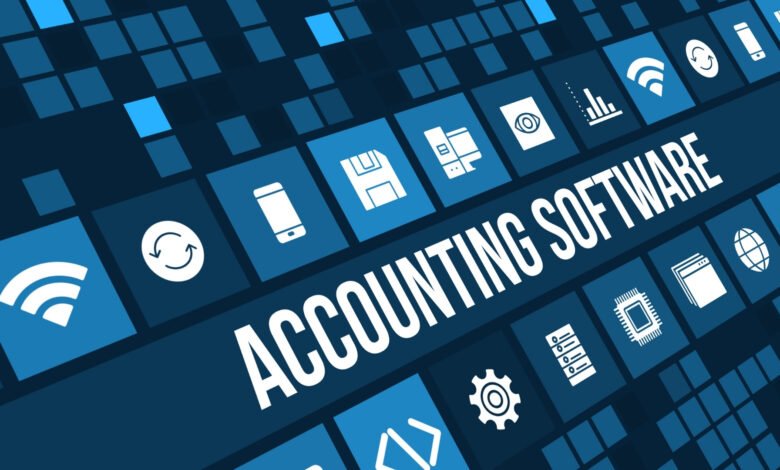Best Accounting Software For Small Business in 2023

In today’s fast-paced business world, managing finances and maintaining accurate records are vital for the success of any small business. With the advancement of technology, the use of accounting software has become essential to streamline financial processes, improve accuracy, and save time. In this article, we will explore the best accounting software options available for small businesses in 2023, considering their features, pricing, user reviews, and integration capabilities.
Running a small business involves various financial activities, such as invoicing, expense tracking, payroll management, and tax preparation. Using accounting software can significantly simplify these tasks, allowing business owners to focus on core operations and growth. Accounting software provides features like automated bookkeeping, financial reporting, and tax calculations, enabling small businesses to stay organized and make informed financial decisions.
Read more: 10 Best Affiliate Marketing Tracking Software Platforms in 2022
Key Features to Consider When Choosing Accounting Software

When selecting accounting software for your small business, several key features should be taken into consideration. These features ensure that the software aligns with your business needs and supports efficient financial management. Here are some essential factors to evaluate:
User-friendly Interface and Ease of Use
The software should have an intuitive and user-friendly interface that makes it easy for users to navigate and perform tasks without extensive training. A simple and well-designed interface saves time and minimizes errors.
Cloud-based vs. Desktop Accounting Software
Cloud-based accounting software offers the advantage of accessibility from anywhere with an internet connection. It allows multiple users to collaborate in real-time and provides automatic data backups. On the other hand, desktop software is installed locally and may offer more advanced features but lacks the convenience of cloud-based accessibility.
Integration with Other Business Tools and Software
Consider whether the accounting software integrates seamlessly with other essential business tools such as payment processors, CRM systems, inventory management, or e-commerce platforms. Integration eliminates the need for manual data entry and improves overall efficiency.
Security and Data Backup Capabilities
The software should have robust security measures in place to protect sensitive financial data from unauthorized access or breaches. Regular data backups and encryption methods are essential to ensure the safety of your business information.
Scalability and Growth Potential
Choose accounting software that can accommodate your business’s future growth. It should be scalable and offer advanced features or additional modules as your business expands. This prevents the need for frequent software migrations.
Customization Options
Consider whether the software allows customization to match your specific business requirements. Customizable features enable you to tailor the software to your unique workflows and reporting needs.
Top Accounting Software Options for Small Businesses in 2023
Based on their features, pricing plans, user reviews, and integration capabilities, the following accounting software options stand out as the best choices for small businesses in 2023:
QuickBooks Online
Overview and Features
QuickBooks Online is one of the most popular accounting software options for small businesses. It offers a wide range of features, including invoicing, expense tracking, tax calculations, bank reconciliation, and financial reporting. The software also provides integration options with various third-party apps and offers a mobile app for managing finances on the go.
Pricing Plans
QuickBooks Online offers different pricing plans to accommodate businesses of various sizes and needs. The plans range from basic to advanced, with pricing tiers based on the number of users and features required.
User Reviews and Ratings
Users generally appreciate QuickBooks Online for its ease of use, comprehensive features, and reliable customer support. The software consistently receives positive ratings and is known for its strong financial reporting capabilities.
Integration Options
QuickBooks Online integrates with numerous popular business tools, including payment processors like PayPal and Square, CRM systems like Salesforce, and e-commerce platforms like Shopify. This integration streamlines data transfer and ensures accurate financial records.
Xero
Overview and Features
Xero is another highly regarded accounting software solution designed for small businesses. It offers features such as invoicing, bank reconciliation, expense tracking, inventory management, and payroll processing. Xero also provides a user-friendly mobile app for on-the-go financial management.
Pricing Plans
Xero offers various pricing plans that cater to different business needs. The plans differ in terms of features and the number of users they can accommodate.
User Reviews and Ratings
Xero receives positive reviews for its user-friendly interface, ease of use, and extensive feature set. Users appreciate its robust reporting capabilities and the ability to collaborate with their accountants in real-time.
Integration Options
Xero integrates with a wide range of third-party apps, including payment processors, CRM systems, and project management tools. This integration helps businesses streamline workflows and ensures accurate financial data across different platforms.
FreshBooks
Overview and Features
FreshBooks is an accounting software solution known for its simplicity and user-friendly interface. It offers features such as invoicing, expense tracking, time tracking, project management, and reporting. FreshBooks also provides mobile apps for iOS and Android devices.
Pricing Plans
FreshBooks offers different pricing plans, including a Lite plan for freelancers and small businesses and a Plus plan for businesses with more extensive needs. The plans differ in terms of the number of clients and features available.
User Reviews and Ratings
Users appreciate FreshBooks for its ease of use, intuitive design, and exceptional customer support. The software receives positive ratings for its invoicing capabilities and time-tracking features.
Integration Options
FreshBooks integrates with various business tools, including payment processors, CRM systems, and project management platforms. The integration options allow for seamless data transfer and efficient financial management.
Wave
Overview and Features
Wave is a free accounting software option suitable for small businesses and freelancers. It offers features such as invoicing, expense tracking, receipt scanning, and bank reconciliation. Wave also provides paid add-ons for payroll processing and payment acceptance.
Pricing Plans
Wave’s accounting software is free to use, making it an attractive option for budget-conscious small businesses. However, certain add-on features, such as payroll processing, have associated costs.
User Reviews and Ratings
Wave receives positive reviews for its affordability, user-friendly interface, and simplicity. Users appreciate the software’s ease of setup and its suitability for small businesses with basic accounting needs.
Integration Options
Wave integrates with a limited number of third-party apps, including payment processors like Stripe and PayPal. While the integration options are not as extensive as other software options, Wave still offers basic functionality for small businesses.
Factors to Consider When Making a Decision
When selecting the best accounting software for your small business, consider the following factors:
Budget and Pricing
Evaluate your budget and choose software that aligns with your financial capabilities. Consider the overall value the software provides in terms of features, user support, and integration options.
Specific Accounting Needs
Assess your specific accounting requirements and ensure that the software you choose fulfills those needs. Consider the complexity of your business’s financial transactions, industry-specific reporting requirements, and tax obligations.
User Feedback and Recommendations
Read user reviews and seek recommendations from other small business owners or accounting professionals. Real-life experiences and feedback can provide valuable insights into the software’s strengths and weaknesses.
Customer Support and Training Options
Consider the availability and quality of customer support provided by the software provider. Look for resources such as online tutorials, documentation, and training materials to ensure you can make the most of the software’s features.
Read more: 10 Best Affiliate Marketing Tracking Software Platforms in 2022
Conclusion
Selecting the best accounting software for your small business in 2023 is a crucial decision that can significantly impact your financial management processes. Consider factors such as user-friendliness, integration capabilities, security, and scalability when making your choice. QuickBooks Online, Xero, FreshBooks, and Wave are among the top accounting software options available, each offering unique features and pricing plans. Evaluate your business’s specific needs and choose the software that best aligns with your requirements, budget, and growth potential.
FAQs
What is the best accounting software for small businesses?
The best accounting software for small businesses depends on individual needs and preferences. QuickBooks Online, Xero, FreshBooks, and Wave are popular options worth considering.
How much does accounting software cost?
Accounting software pricing varies depending on the provider and the features included. It can range from free (such as Wave) to monthly subscriptions with different pricing tiers based on features and user numbers.
Can accounting software help with tax preparation?
Yes, accounting software often includes features that streamline tax preparation, such as tax calculations, expense categorization, and generation of financial reports required for tax filing.
Is it possible to switch accounting software later?
Yes, it is possible to switch accounting software later, although it may require data migration and some adjustment to new workflows. It’s advisable to choose software that allows for easy data transfer and provides import/export functionality.
What are some alternative accounting software options?
Other notable accounting software options for small businesses include Zoho Books, Sage Intacct, Kashoo, and MYOB. Researching and comparing different options can help you find the best fit for your business.











